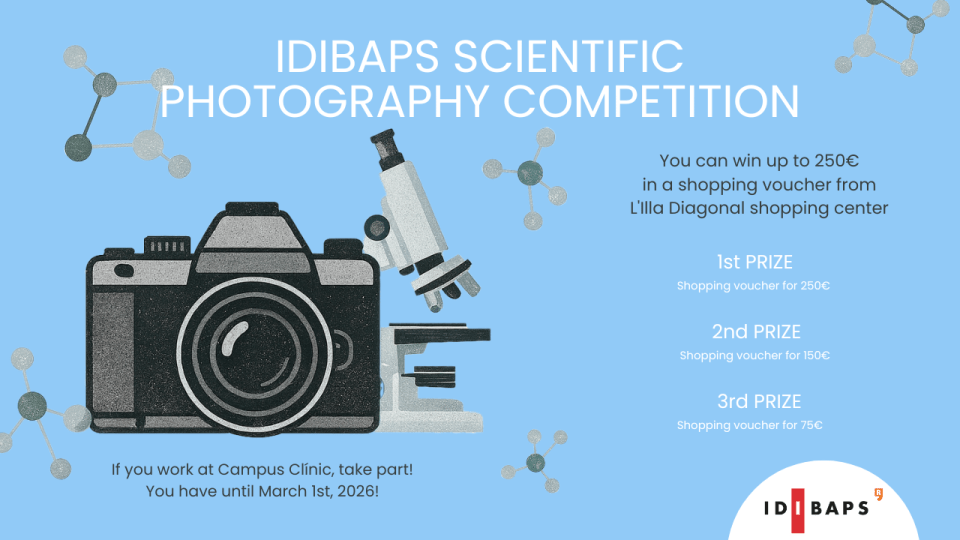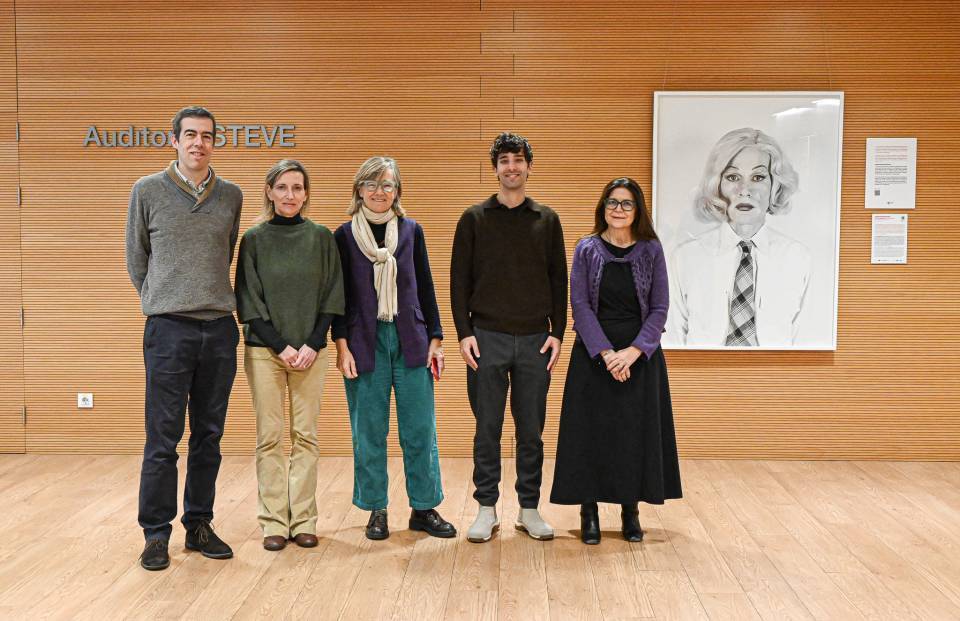On Monday 2 October the CEK Esteve Auditorium hosted the "Think Green. Towards a more sustainable research @IDIBAPS" event, which was attended by over sixty people. The event commenced with a welcome speech by Michela Bertero, the director of Strategy for IDIBAPS. Next, Marta Rodríguez Martínez, the EMBL head of sustainability, and Teresa Sanchis, the director of Strategy for the IBEC, presented the sustainability practices that have been implemented at their research centres (find out more on Sustainability at the EMBL and at the IBEC).
To follow, three IDIBAPS workers, Albert Compte, Sandra Piquer and Laia Bonjoch, detailed the different actions promoted by IDIBAPS since the creation of the Sustainability Commission in the year 2022. They described the committee’s tasks, and presented the institution’s Sustainability Manual, which was published several months ago.
In the case of all three organisations, IBEC, EMBL and IDIBAPS, it was confirmed that research is an activity that causes an impact on the environment. Large quantities of disposable items are used, generating tons of plastic waste. In order to conduct experiments and store and analyse the results, machinery and equipment that consume a high amount of energy are required. Furthermore, research also involves considerable travel in order to attend conferences and congresses.
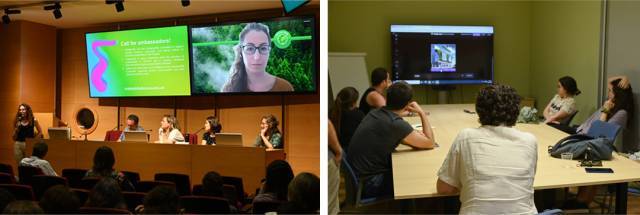
The actions proposed by the centres to reduce this impact are based, largely, on reducing water and energy consumption, as well as on the reduction, reuse and recycling of materials used. Additionally, on raising awareness among staff to ensure that they are conscious of the impact of their research and will consider what they can do on an individual basis (reduce travel, promote the purchase of materials with a lighter environmental footprint, turn off computers and equipment when leaving work, use ultrapure water only when strictly necessary, etc.).
The event concluded with a participative workshop with generative artificial intelligence, moderated by Pablo Iañez, expert in bioinformatics at ISGlobal. Following a short introduction, support was given to participants as they imagined the sustainable laboratory and institute of the future using a generative AI tool. Below you will find two images obtained using this tool.
One of the groups of participants imagined what a sustainable research centre of the future should look like.
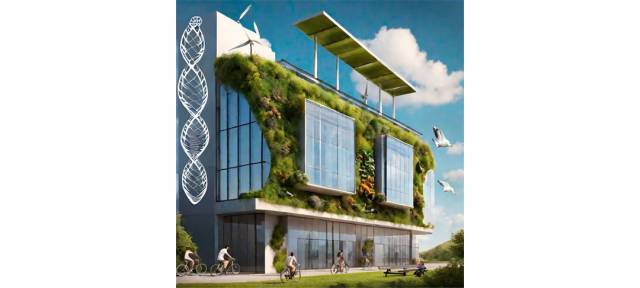
The other group redesigned its research laboratory to make it more sustainable (on the left, the original laboratory).
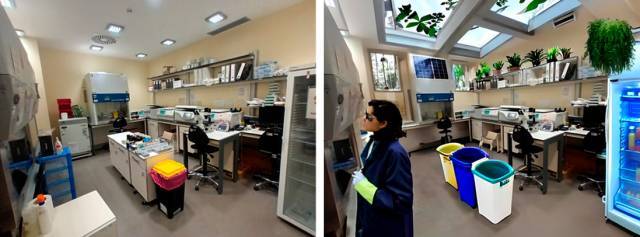
Staff at IDIBAPS interested in sustainability and who want to collaborate with the Sustainability Committee or have ideas that the institution can adopt, can contact the committee at the following email address: sustainability@recerca.clinic.cat


